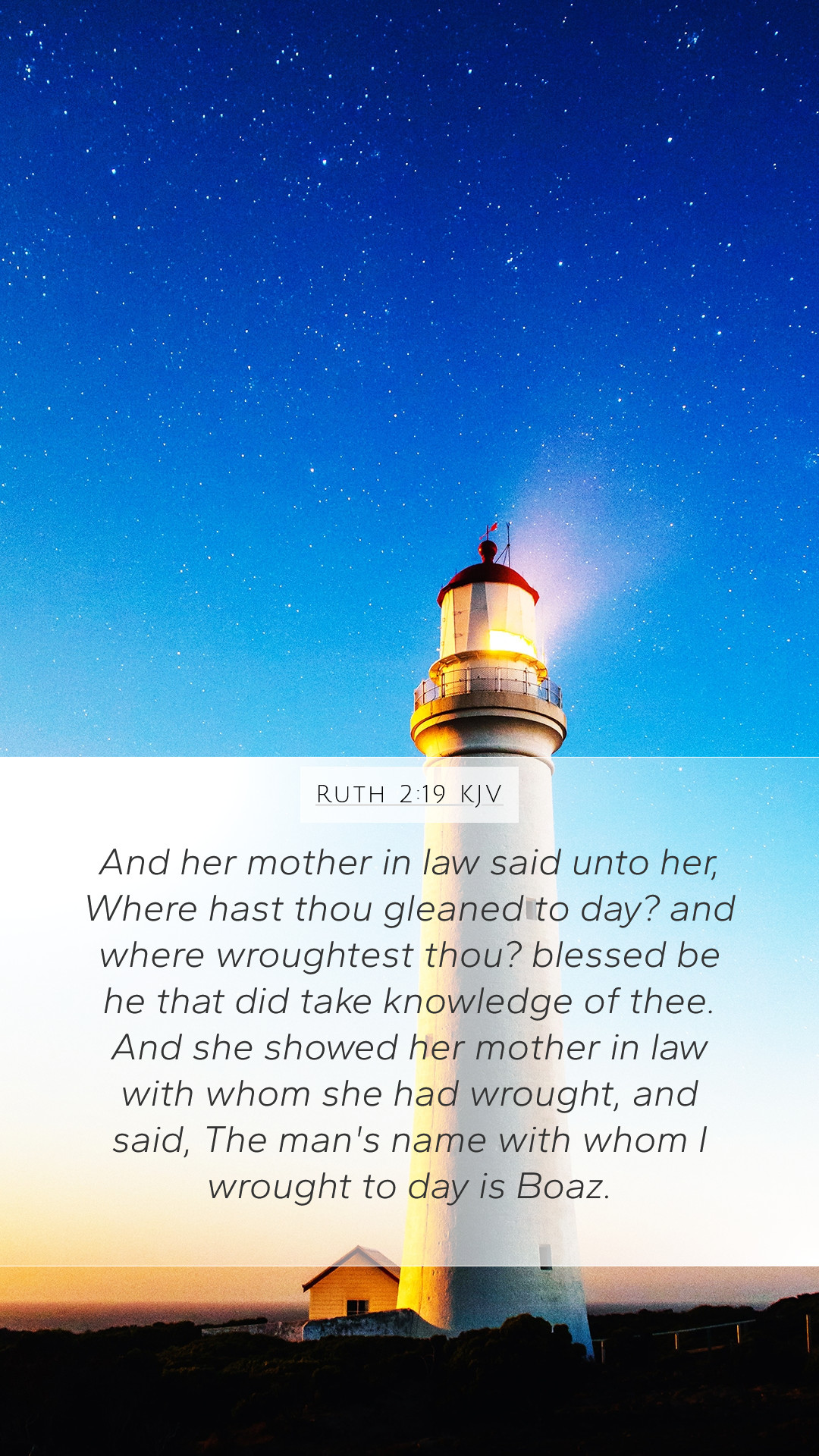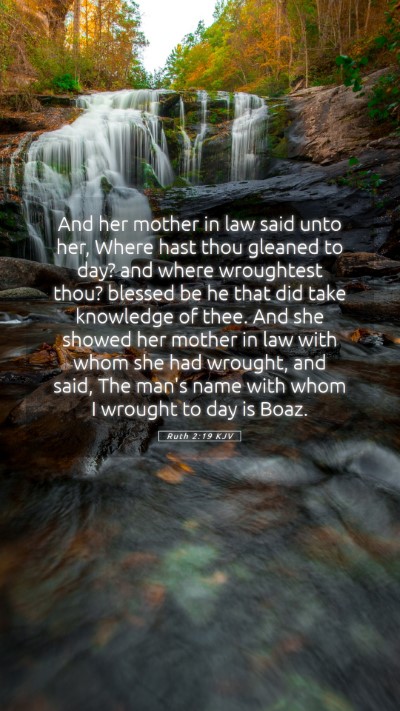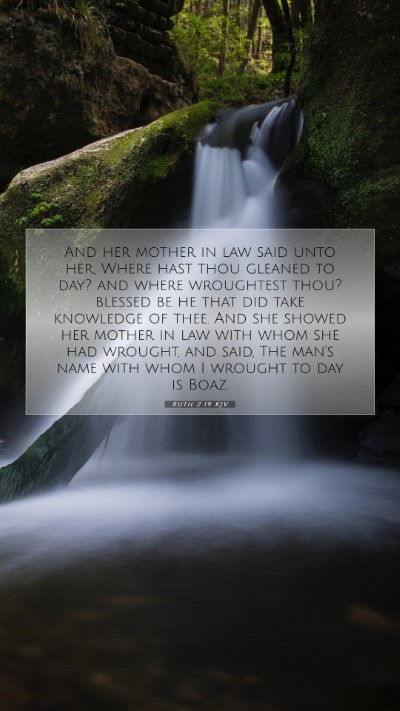Old Testament
Genesis Exodus Leviticus Numbers Deuteronomy Joshua Judges Ruth 1 Samuel 2 Samuel 1 Kings 2 Kings 1 Chronicles 2 Chronicles Ezra Nehemiah Esther Job Psalms Proverbs Ecclesiastes Song of Solomon Isaiah Jeremiah Lamentations Ezekiel Daniel Hosea Joel Amos Obadiah Jonah Micah Nahum Habakkuk Zephaniah Haggai Zechariah MalachiRuth 2:19 Meaning
What is the meaning of Ruth 2:19?
And her mother in law said unto her, Where hast thou gleaned to day? and where wroughtest thou? blessed be he that did take knowledge of thee. And she showed her mother in law with whom she had wrought, and said, The man's name with whom I wrought to day is Boaz.
Ruth 2:19 Bible Verse Meaning
Understanding Ruth 2:19 - A Biblical Commentary
The verse Ruth 2:19 reads: “And her mother-in-law said unto her, Where hast thou gleaned today? and where wroughtest thou? Blessed be he that did take knowledge of thee. And she shewed her mother-in-law with whom she had wrought, and said, The man’s name with whom I wrought to day is Boaz.” This verse serves as a vital moment in the Book of Ruth, offering insights into God’s providence and the theme of redemption.
Context and Background
In the historical context, the Book of Ruth is set during the time of the judges in Israel. Ruth, a Moabite widow, returns to Bethlehem with her Israelite mother-in-law, Naomi, after both experience deep personal loss. This verse highlights a pivotal moment when Ruth returns from gleaning in the fields and shares her experience with Naomi.
Commentary Insights
- Matthew Henry: Henry emphasizes the significance of God's providence in the decisions made by Ruth and Naomi. He notes that Ruth's gleaning in Boaz's field was not merely coincidental but orchestrated by divine direction, showcasing God's care and guidance in their lives.
- Albert Barnes: Barnes focuses on the anticipation and response of Naomi. He comments on how Naomi's inquiries reflect her concern for Ruth and her desire to see her daughter-in-law provided for. The blessing on Boaz’s kindness illustrates the community aspect of kindness and God's blessings.
- Adam Clarke: Clarke provides a deeper insight into the activity of gleaning itself. He explains that this practice was not only a social welfare system but also a divine mandate to care for the poor and needy, empowering Ruth’s agency in a foreign land while relying on God’s provision.
Key Themes
This verse encapsulates several important themes:
- Divine Providence: The events in Ruth's life are seen as orchestrated by God, setting the stage for her eventual redemption through Boaz.
- Community and Kindness: The mutual support between Ruth and Naomi, and also the kindness shown by Boaz, exemplifies the communal nature expected among God's people.
- Faith and Determination: Ruth's hard work in the fields exhibits her commitment to support Naomi and herself, paralleling faith in action.
Application of the Verse
Ruth 2:19 encourages modern readers in various ways:
- In times of uncertainty and loss, it reminds believers of God's continual provision and guidance.
- The community's role in supporting one another is highlighted, emphasizing the importance of kindness and compassion.
- This verse can inspire individuals to act with faith and diligence in their everyday lives, trusting that God directs their paths.
Cross References
This verse relates well to other scriptures that deepen its meaning:
- Leviticus 19:9-10: Instructions about gleaning for the poor.
- Proverbs 31:20: The virtuous woman's care for the needy.
- Galatians 6:2: Encouragement to bear one another's burdens.
Conclusion
Ruth 2:19 offers profound insights for those seeking Bible verse meanings and understanding Scripture. Through the commentaries of respected theologians, the verse opens a window into God's providence and the essence of communal kindness, encouraging believers to embody these principles in their own lives.


